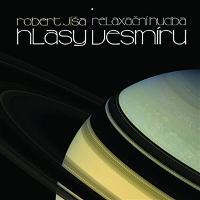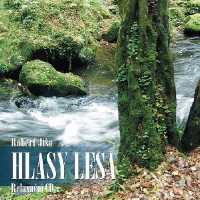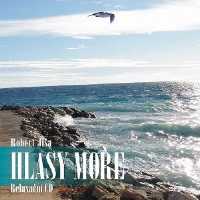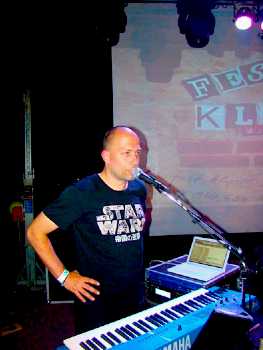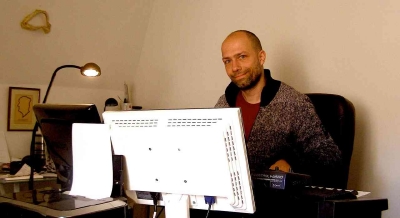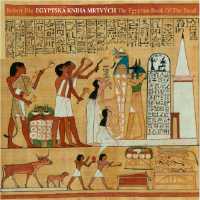Highly inspirational and emotional music from the Czech Republic:
|
||
 Robert, I imagine you will be totally unfamiliar to many, so please do tell us a bit about yourself… I’m a music composer living in Prague. Originally, I studied piano, then I found out that I love composing, so I started studying composition. First in Prague – classic composition, then in Boston – film scoring. I’m a full time music composer from 1991 till now, I’m married to my sweet wife Marketa and we have an eighteen months old son Jachim who seems to be interested mainly in drums 🙂Although you studied (machine) engineering, you later on made a switch to Art School and the Conservatory. How come? You know, my family is a music family. My father was a professional organ and piano player and my mother still teaches classical guitar. I always loved airplanes, space and these things, but I guess that my decision to study engineering was more a rebellion against my parents (who made me to play piano since I was four or so) than a plan for my life. Secondly, that at that time, my country was still in deep communism and to be a professional musician had clear boards and limits. It was unthinkable somebody would just decide to be an ambient music composer, releasing albums, doing live performances etc. without cooperating with the sick system. My father was a performer, that was easier (although even he had certain problems with the communists) but to become a freelance composer back then took a big deal of your freedom. So I wasn’t even thinking about such a career at the time….You also began composing concept and music and even went to the USA to study film music at Berklee’s College of Music… Fortunately, I had the opportunity to spend four fascinating years at Berklee. During the summer of 1994, after I released the album “Aquarius”, I went to New York State to nurse disabled people from around the country. It was some youngsters exchange program that I enrolled, and I thought it would be a great experience, which it was. One day, a couple of friends and me decided to make a trip to Boston. After NYC, Boston felt so familiar and comfortable: old buildings, parks, much slower tempo… and Berklee, the school my father told me about so much when I was young! Well, and that’s exactly what happened! I just missed out on the famous John Williams, who was giving lessons at Berklee. Nevertheless. I met so many other amazing people that influenced and changed my life, my understanding of music and much more. I must mention Ken Greenhouse here, who showed me what it means to be a true genius, and I will never forget his impact on my seeing and hearing music. Robert, please be so kind to give us an overview of the music and albums you made so far… From your albums, I’m especially impressed by “Space Voices”. What can you tell about its evolution and the series it apparently seems to belong to?
The “voices” series was born by an accident. My friend Kristian, who runs the record label NextEra while also licensing all my recent work, called one of my soothing music albums “Forest Voices”. Simply because he heard some forest sounds in it next to the sounds of nature, birds, brooks etc. I myself hadn’t come up yet with a name for the album. I thought though it a great name, we sticked to it and released it under that name.
Then, the big label that distributed it, asked for something new. I remembered my project that I started to work on already when studying at Berklee in Boston: a musical trip over the world. Individual compositions represented mostly ports of the world I’ve visited before, such as Boston, Acapulco, Caracas, Galle, Dublin, Marsa Alam among others. Then I added places that I’ve never visited, and composed music that would represent how I imagined their energies: Spitzbergen, Ushuaia, Auckland etc. I also added particular rivers like the Vltava of Prague, the Amazone and the Russian Volga plus a few seas. I was fascinated by different cultures and how they are connected by the rivers, seas and oceans. I thought I could do a pretty interesting cd based on this Berklee work. The album title “Space Voices” was the only logical consequence of that. What would be the next step after you have visited the ocean, right? 🙂
Are there any other recordings in your discography which have a special meaning for you or something special to them?
But looking back at my previous albums, I’m especially pleased about my very first album “Hourglass”. It meant a whole revolution in my life. I also much like the Amazonas album. I joined the expedition Titanus Giganteus 1994 to the heart of Amazone, recording hours of ambient recordings every day. Day and night. I did what was forbidden, I left the group and walked alone through the rain forest, making recordings the best as possible. It was a big adventure, and composing the music was an amazing trip too. The outcome was, for that period of time, outstanding I guess. Years ago you had plans to move to the USA, but in the end you did not take the step. Why didn’t you stay in there at the begin of 2000 when you graduated?. I remember the chairman of my Film Scoring Department told me face to face returning home was a bad idea for my career. In his opinion, the best was to move to Hollywood and to start building my career. Me on the other hand, I wanted to taste a proper beer again, to kiss the girls again, to talk to my crazy friends again… I didn’t care much about my career back then. We Czechs were still like babies in the nineties, so even I thought good things may come without sacrifices. Now I see things a bit different. How do you spent your time when you’re working on music, and how does this affiliate with your ongoing desire to produce film music?
I love films, I’m even pretty interested in multimedia, which uses often music that is weaker than the visuals, lowering the value of the whole product. Hollywood films, however superficial sometimes, have usually superb music, sometimes BBC and National Geographic movies use fantastic music, while only a few French films have great music. Most of the time though, we hear average or even bad music underscoring stories and visuals that are excellent in all other means. I think, no, I believe this is a shame. Music can do so much for the way a movie, a show, a PCgame etc. works in our brain and heart. They write the screenplay for years, they struggle to collect money, they shoot the film for another year and then another couple of months they edit it, correct the colors, mix all the atmospheres and steps, shots, door slams and whatever else… so much work. And then they say in a minute: now let’s put SOME music to it, and that’s it. It’s by this very decision the movie loses perhaps 40-60% of its potential. They just aren’t aware of how important it is. In my opinion, especially European films suffer from this unawareness of the importance of music way too often. At the time of working on the music, which mostly happens post-production, most of the movie’s budget is usually almost spent.There’s not much time left anymore, but it is so important to do this thing right… music can turn an average movie into a great and moving experience, but vice versa it can turn a great story and film into just one of those films… So what more did you do to get know? I even think about occasionally offering custom-made recordings to one specific patient or customer. I think it may be a very interesting activity for me, although I have no idea about how well this “service” will be received by the people in the real world:-) We’ll see. Next to this, I lately started working on iPhone and iPad applications too. The first one is called Prague Friend, and it’s going to be an “insider” or “secret” guide over my town, about keeping away from the mad-making crowd. If it shows a functional way, we would like to continue in other cities. What can you tell about your studio, the technique and instruments you use..
You’ve just finished work on your last album “The Egyptian Book of the Dead”. What made you choose this concept, what did you envision for its music, how did you approach the music and start composing…
In recent years I studied the beginning of Christianity and, logically, ran into the Jewish legends, which closely relate to Egypt again. Then I studied the Pharaohs, their fascinating architecture, the whole symbolism, and realized that so many things, symbols are still used in our everyday lives, it actually shocked me. What even more shocked me, was that Egyptian hieroglyphs of over thousands years old were found in Australia and Americas. Strange, isn’t it? As Woody Allen would say: Everything’s Else 🙂 I found just a few answers so far, but the whole process of learning, thinking, realizing and sensing was so intense and inspirational, I simply had to compose something about it. I didn’t want to compose an ethno album though, I wanted to compose something that would, in symbols, tell the story of how tightly we’re connected to our history that seems to be so far away. Because, after all, it isn’t that disconnected and far. Egypt (and all that was here before it) is us. We just don’t know about it. The connection seems to be lost, but I think it can be fixed. All the legends and symbols that our churches are using were already used in Egypt and probably before. Only the key, the philosophy, the concept of life and death was in Egypt very, very different from how we think about these things now. Unfortunately for us. But new times are approaching and perhaps this will get fixed too… “The Egyptian Book of the Dead” is a fascinating collection of ancient documents that then became the leit-motive of the project. I wanted not just cover the historical periods between pharaohs and today, but also musically encode symbols that I found interesting. For example, one composition’s theme is based on the Great Pyramid of Giza geometry. Many forms, beats, intervals of this album are a musical translation of symbols, either Egyptian or from Kabbalah or plain numerology. Final question: I heard you also seem to be involved in a forthcoming live-event… My vision on it based on “The Egyptian Book of the Dead” project and the composition “Illumination Voices”. It’s supposed to have a couple of levels, and incorporating several stories: the story of the history of Prague, the story of human history, the mediaval symbolism, hermetism, the future and the connection among it all. It would be an electro-acoustic continuation of “The Egyptian Book of the Dead”. There’s still a long way to go, but so far everything seems to support the idea. Meanwhile, me and my friend PhD Maskova have started organizing some little concerts in the Prague planetarium, based on the “Space Voices” cd. Even this is in pre-production, but if all goes well, I will be pretty busy the forthcoming months… Selective discography: * Five Tibetians (Pět Tibeťanů) (CD, 2004) Website: www.filmmusic.cz |
||

